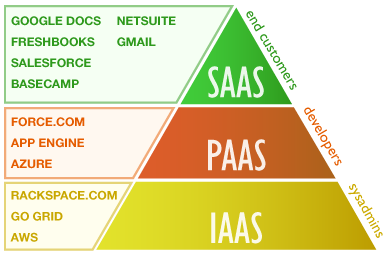"Cloud computing in very simple terms, is basically where a company uses someone elses computing services that include compute power, storage, networking and analytics (usually over the internet) instead of having to run that software on their own computers."
"Benefits of cloud computing : It's cost-effective, scalable, elastic, current, reliable, global && secure"
- compute power: VMS, containers and serverless
- storage: database...
- networking.
- analytics.
- cost-effective: pay-as-you-go, consumption-base pricing model
- scalable: vertical(scaling up) and horizantal(scaling out).
- elastic: automatically adding or removing resources.
- currrent: focus on what matters(building and deploying applications).
- reliable: data backup, disaster recovery, and data replication services.
- global: datacenters located in various regions all over the globe.
- secure: provide better security than most organizations can achieve(physical/digital security).
In data storage terminology, the word compliance is used to refer to industry-wide government regulations and rules that cite how data is managed and the need for organizations to be in compliance with those regulations. more
- Azure is the only major cloud provider that contractually commits to conformance with the CJIS Security Policy.
- Azure have obtained STAR Certification. This STAR certification is based on achieving ISO/IEC 27001 certification and meeting criteria specified in the Cloud Controls Matrix (CCM)
- Azure delivers to its enterprise cloud customers meet current EU standards for international transfers of data (GDPR).
- Azure offers customers a HIPAA Business Associate Agreement (BAA) as a contract addendum
- Microsoft is the first cloud provider to have adopted the ISO/IEC 27018 code of practice, covering the processing of personal information by cloud service providers.
- Microsoft cloud services received MTCS 584 certification across all three service classifications (Iaas, Paas, Saas)
- Microsoft-covered cloud services are audited at least annually against the SOC report framework by independent third-party auditors.
- Microsoft cloud services are certified according to the FedRAMP standards.
- Azure has received official accreditation from the UK Government Pan Government Accreditor (UK Government G-Cloud).
Economies of scale is the ability to do things more efficiently or at a lower-cost per unit when operating at a larger scale. This cost advantage is an important benefit in cloud computing. Providers can then pass the savings on to their customers.
Some Important terminology:
-
Vertical scaling, also known as "scaling up", is the process of adding resources to increase the power of an existing server. Some examples of vertical scaling are: adding more CPUs, or adding more memory.
-
Horizontal scaling, also known as "scaling out", is the process of adding more servers that function together as one unit. For example, you have more than one server processing incoming requests.
Based on a deployment model, we can classify cloud as:
- public,
- private,
- hybrid
- community cloud
Based on a service the cloud model is offering, we are speaking of either:
- IaaS (Infrastructure-as-a-Service)
- PaaS (Platform-as-a-Service)
- SaaS (Software-as-a-Service)or, Storage, Database, Information, Process, Application, Integration, Security, Management, Testing-as-a-service
